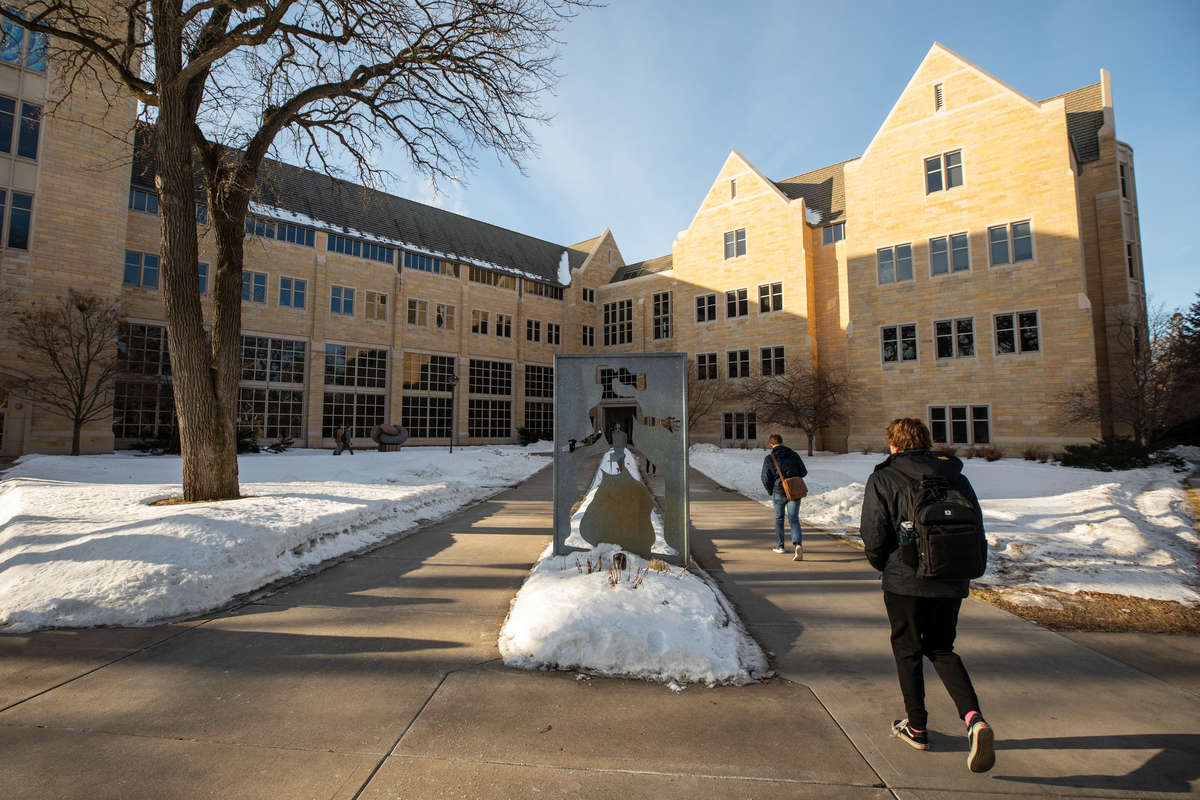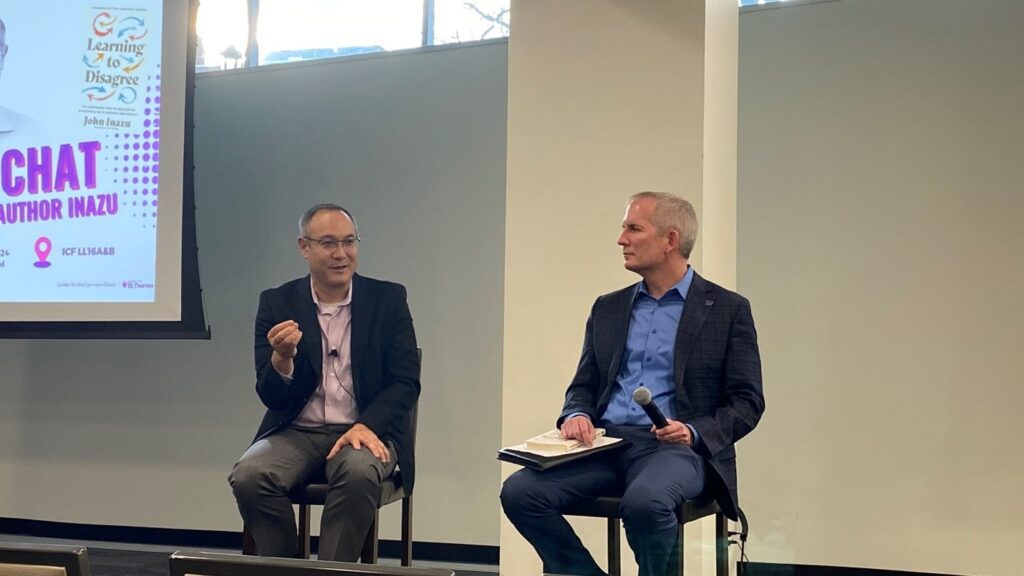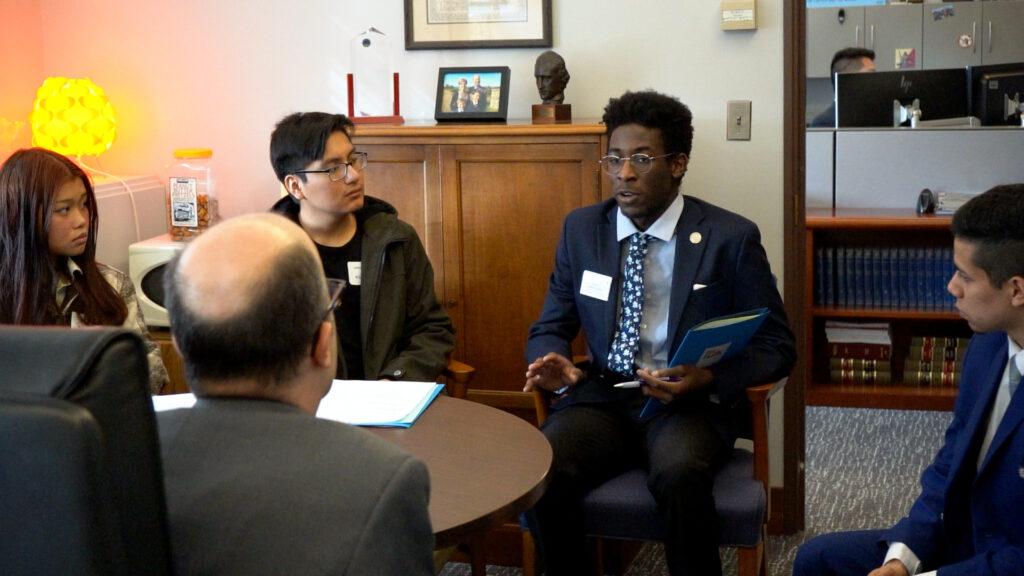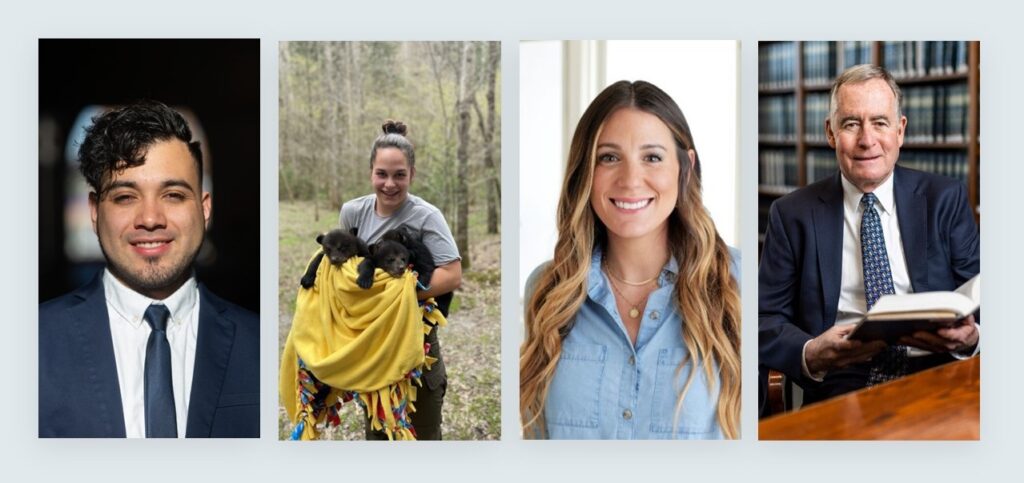With one eye toward the future and another on the community, the Association of Women in Science (WINS) has honed in on two of St. Thomas’ five-year plan priorities that go hand in hand – engaging all students as changemakers and becoming leaders in STEAM. St. Thomas’ STEAM programs aim to “ensure that all students in STEAM programs participate in at least one high-impact practice per year by 2025.” One high-impact practice is community-based learning, which is what WINS did on a chilly Monday afternoon in the Anderson Student Center by putting on a science fair.
Ramsey Middle School students look forward to participating in their science fairs, spending countless hours working on their projects and perfecting their experiments. Not only are science fairs fun, but they are also a huge learning opportunity for students. WINS and Ramsey Middle School’s after-school STEM program Flipside teamed up to hold the first Flipside Science Fair.
This wasn’t the first interaction between WINS and Flipside – WINS members have been volunteering with Flipside students throughout the fall semester to create mini science fair projects, including vinegar and baking soda volcanos and “rubber” eggs. Through their interactions with WINS, the Flipside students seemed to have received not only guidance for their science projects, but also exposure to students just a few years older who could act as models upon whom they might project their aspirations.
“It was really fun, they were pretty nice,” said Bea, one of the Flipside presenters. “They taught me so much. I learned how to make a poster board and how to do an experiment.”
Another Flipside student, Relena, said that while the WINS members kept them pretty busy, “at the same time it was fun because you got these teachers who can help you and support you. It was pretty awesome.”
The Flipside students are not the only ones who were impacted by this project – the WINS members gained and nurtured some important skills during their experience. Megan Merricks ’22, president of WINS, explained that her time management skills improved due to all the lesson planning that went into the project. “Maggie and I both spent two hours a week at the middle school teaching classes, but with lesson planning and prep work we have logged around 70 hours each this semester,” said Merricks.
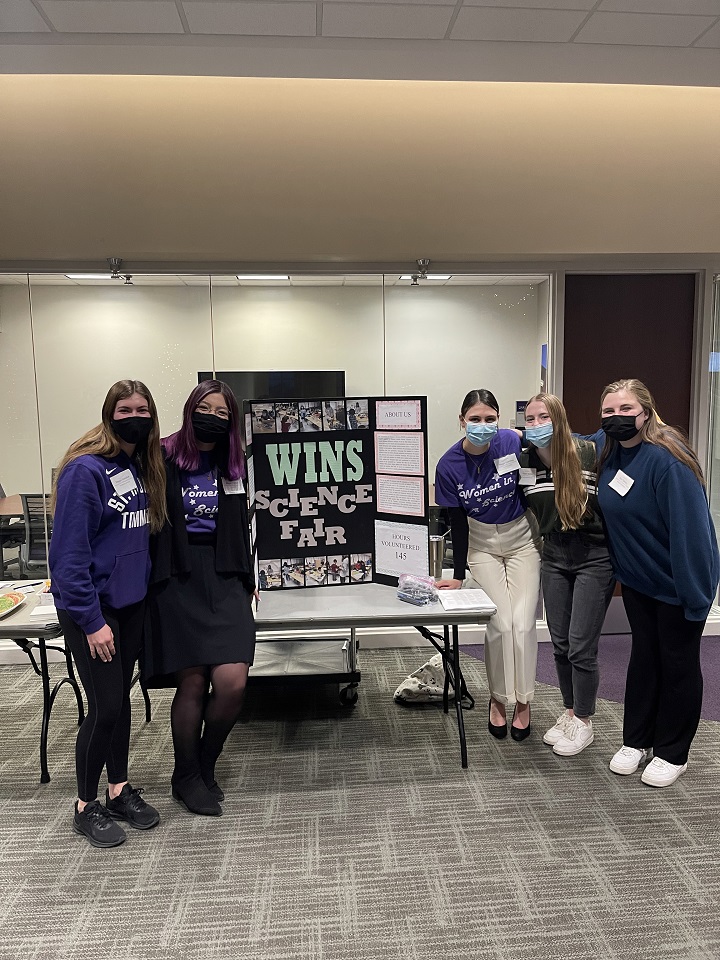
Vice President of WINS Maggie Erpelding ’22 stated that she improved her communication skills because of how different this project was compared to anything she’s ever worked on before. “Working with and coordinating between professors and the Center for the Common Good to pull this project together took a different set of skills than I was used to,” said Erpelding.
Erpelding was influenced by her middle school science fair experiences and came up with the idea for this project three years ago in her first year at the University of St. Thomas. “I wanted to share the experiences that introduced me to science and my love for science with the next generation of hopeful scientists. I want them to be creative and explore questions,” she said.
In imagining and implementing this project, WINS members are well on their way to achieving Erpelding’s goal of inspiring and supporting community children’s interest in science and helping to grow the next generation of scientists.
